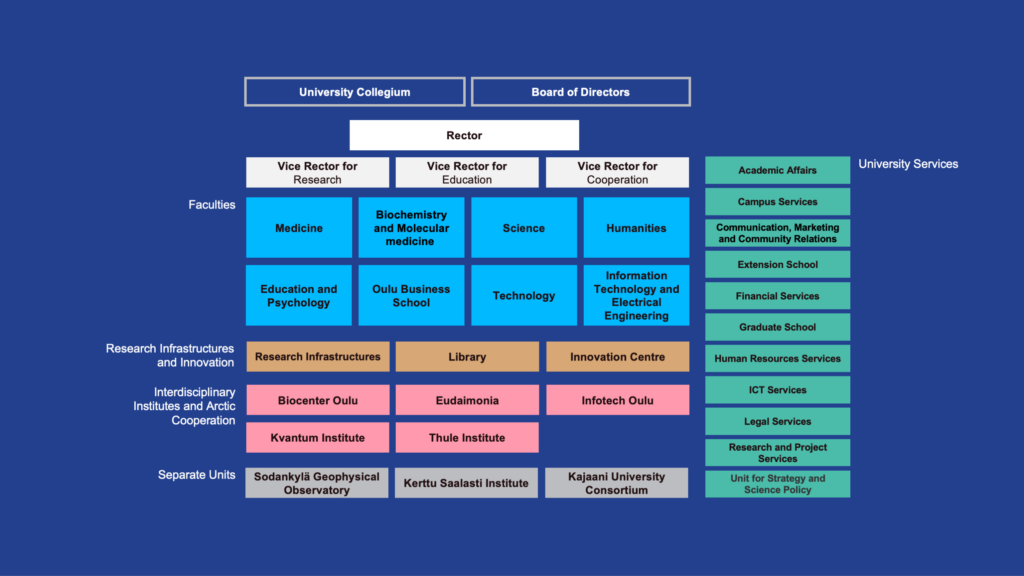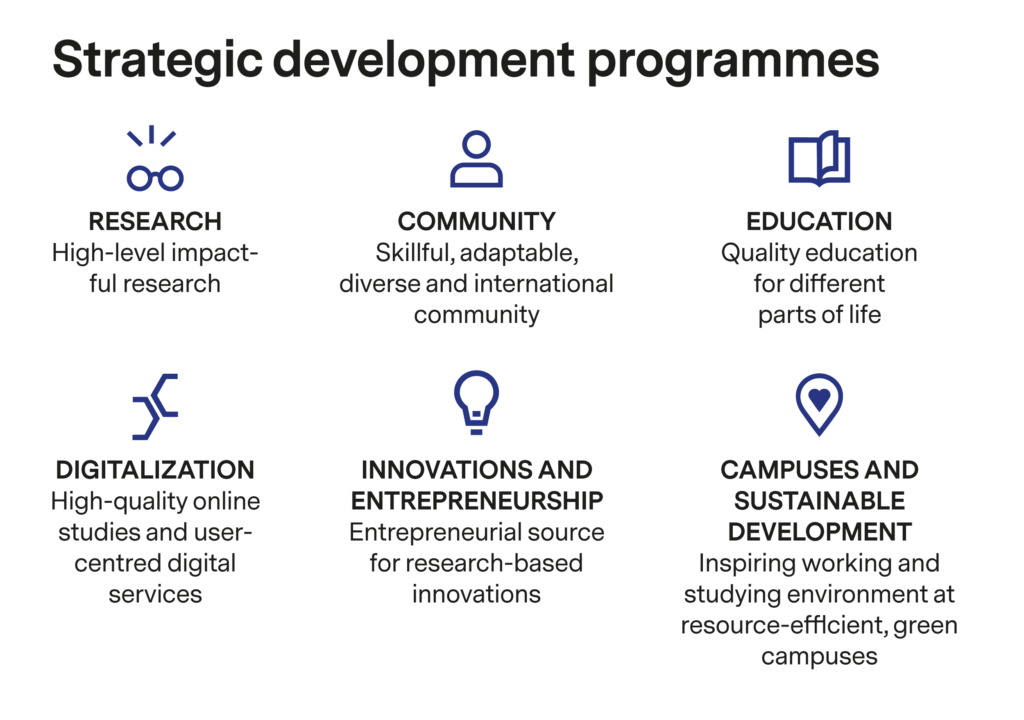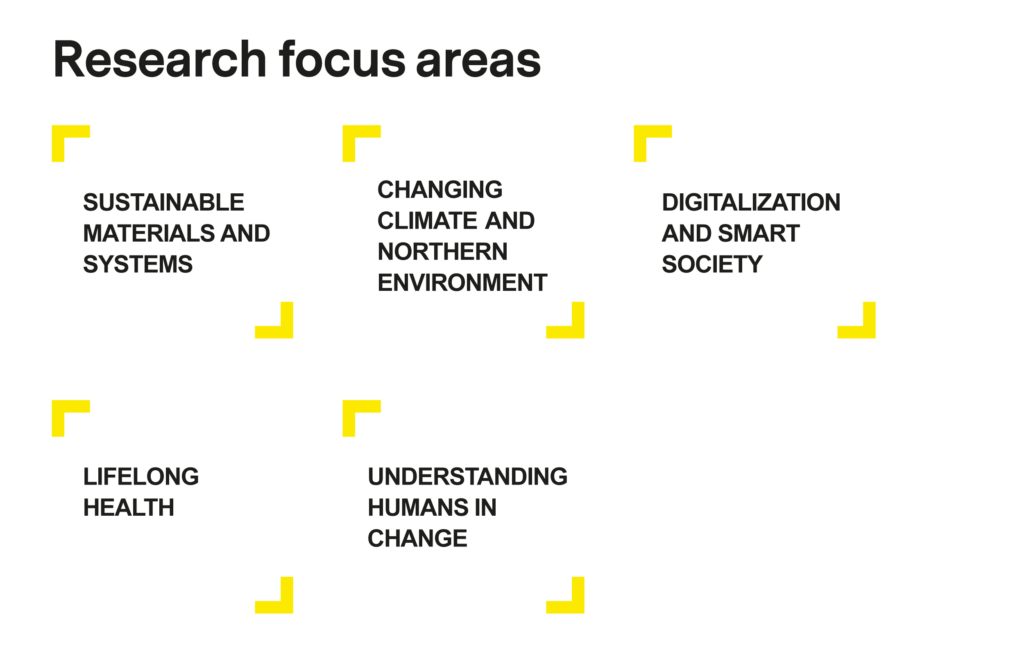The organisation of the University of Oulu
The University of Oulu (UO) is an international science university that creates new knowledge, well-being and innovations for the future through research and education. The UO, founded in 1958, is one of the largest and most multidisciplinary universities in Finland. As one of the Northernmost international science universities the UO has a particular responsibility toward questions related to the Arctic.
The highest decision-making body in the UO is the Board (Fig. 1).

Figure 1. Organisation chart of the UO.
The Rector is in charge of directing the operations of the UO. The UO has three Vice Rectors, who are responsible for their own areas: education, research, and cooperation affairs. The Working Committee, including the rectorate and the Deans together form the Management Group of the UO. Each faculty has its own Dean. The Dean’s task is to lead the faculty in accordance with the objectives defined by the University Board and the Rector.
The UO has two main campuses, Linnanmaa and Kontinkangas, both situated in the city of Oulu. Administrative and support services are provided by the Service units and functions. The UO provides part of the services also for Oulu University of Applied Sciences. In 2022 the UO had approx. 13,900 students and 3,800 employees.

Figure 2. Key figures for education and staff 2022
Strategy
At the UO, we carry out science with an Arctic attitude. As a part of the international science community, we produce new scientific information and science-based solutions and train future pioneers to build a more sustainable, intelligent, and humane world.
The current Strategy of the UO for the 2020s was approved by the Board in 2019, and the strategy update work will be carried out in 2023. The update concerns the overall strategy of the UO, strategic development programmes and the strategies of the faculties, regional units and focus institutes. Regarding the UO’s strategy work, a living strategy approach to continuous updating is being discussed.
Strategy implementation takes places across the UO, in faculties and in all the units. The UO has created its first Arctic Strategy (launching was in January 2023), and it will be an integral part of university’s overall strategy. Strategic development programmes (Fig. 3) are derived from the UO’s strategy.

Figure 3. Strategic development programmes.
Our research focus areas (Fig. 4), profile fields and strategic development programmes (Fig. 3) will steer the University’s development in the coming years. At the UO we have four focus institutes: Biocenter, Eudaimonia, Infotech and Kvantum which promote research co-operation that crosses faculty boundaries in our multidisciplinary focus areas. The focus institutes promote interdisciplinary and internationally significant research in the focus areas defined in the university’s strategy. Our researchers contribute to solving global challenges in strategic spearhead research projects and in the emerging projects organized under the focus institutes. Part of the UO’s strategic research funding is directed at the interdisciplinary, internationally reviewed 4-year spearhead projects.
Separate Regional units strengthen the UO’s research activities and effectiveness.

Figure 4. Research focus areas.
The values of the university community: creating new, taking responsibility, and succeeding together guide all activities of the UO community.